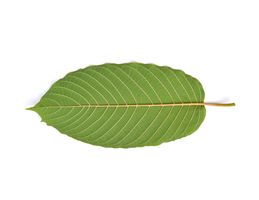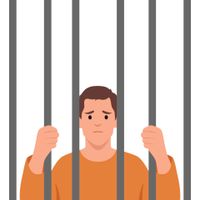Louisiana Kratom Ban:Everything You Need to Know About Senate Bill 154
Bottom Line: Louisiana has enacted Senate Bill 154, which criminalizes kratom possession and distribution statewide. The bill passed the House 87-6 and the Senate 26-11, was signed by Governor Jeff Landry, and becomes effective August 1, 2025.

What is Senate Bill 154?
Senate Bill 154, sponsored by state Sen. Jay Morris (R-West Monroe), criminalizes the possession and distribution of kratom, which is derived from a southeast Asian tree. The bill adds mitragynine and 7-hydroxymitragynine to Louisiana's Schedule I controlled substances list.

Criminal Penalties Under SB 154
Possession Penalties:
Up to 20 grams: Fine up to $100More than 20 grams: Fine up to $500 and up to six months in jailRepeat offenders: Fines up to $1,000
Distribution/Manufacturing Penalties:
Under 500 grams: Up to three years in prison and $50,000 fineLarger amounts: Up to five years in prison
Louisiana's Kratom Ban is Now Law
Louisiana's SB 154, effective August 1, 2025, enacts one of the most restrictive kratom regulation policies in the U.S. by classifying kratom's active components as Schedule I substances under the Uniform Controlled Dangerous Substances Law. Governor Jeff Landry has signed the bill into law, making Louisiana one of only a few states to completely ban kratom.
Arguments For the Ban
Supporters of SB 154 cite public safety concerns:
Rep. Debbie Villio (R-Kenner) argued that "kratom companies aren't allowed to make medical claims about their products because the herb is not an approved drug, but the vendors routinely do so."State Rep. Debbie Villio stated: "It is causing greater drug addiction. It is causing psychosis. It is causing death. It is causing our babies to be born addicted."Sheriffs called it a public safety problem and said it was costing lives.
Arguments Against the Ban
Opposition to the ban centers on several key points:
Usage Statistics:
The American Kratom Association estimates that more than 325,000 law-abiding Louisianans currently use kratom as part of their personal health and wellness routines.Rep. Peter Egan (R-Covington) argued that "more than 6% of Louisiana's population uses kratom" and that "naturally occurring leaf-based kratom is consumed by an estimated 300,000 Louisianaians."
Safety Profile:
Only 43 deaths in Louisiana have been tied to kratom, and nearly all involved other substances.Kratom advocates argue there are "zero confirmed deaths from use in isolation."
Alternative Uses:
Kratom users said the substance had saved their lives by treating chronic pain and mental health problems.Jimmy Vines, a Louisiana resident, says: "I get up in the mornings, I take my kratom. I can go for a number of hours without pain."
Failed Amendment Attempts
Two representatives — Rep. Beryl Amedee (R-Gray) and Rep. Peter Egan (R-Covington) — attempted to amend the bill so that pure kratom leaf products would still be legal, while those created in labs to have amplified levels of the compound 7-hydroxymitragynine would be illegal. Both amendments were defeated.
The Alternative: House Bill 253
While SB 154 passed, advocates are organizing to revive House Bill 253—a competing bill that would have created a regulatory framework for kratom instead of banning it. HB 253 would have required testing, labeling, age restrictions, and bans on adulterated products.
The American Kratom Association has publicly endorsed HB 253 and opposes SB 154, arguing that HB 253 provides necessary consumer protections without criminalizing responsible use.
What Kratom Users Should Know
With SB 154 now signed into law, kratom will become illegal in Louisiana starting August 1, 2025. Anyone currently using kratom should be aware that possession will carry criminal penalties after this date. The American Kratom Association and advocacy groups continue to explore legal challenges to the ban.
National Implications
Louisiana's SB 154, effective August 1, 2025, enacts one of the most restrictive kratom regulation policies in the U.S. The kratom industry, with $2 billion in sales and as many as 16 million users, has expressed concern that Louisiana's ban could influence other states to consider similar legislation. Louisiana now joins only a handful of states with complete kratom bans.
Understanding Kratom
Kratom is made from the leaves of a tropical tree in Southeast Asia. People have used it for centuries to reduce pain, enhance mood, and treat opioid withdrawal symptoms. The National Institute on Drug Abuse reports that "kratom" commonly refers to an herbal substance that can produce opioid- and stimulant-like effects.
Conclusion
The enactment of Senate Bill 154 represents a significant development in Louisiana's approach to kratom regulation. With Governor Landry having signed the legislation, Louisiana has joined the small number of states with complete kratom bans. Starting August 1, 2025, possession and distribution of kratom will carry criminal penalties, affecting an estimated 325,000 Louisiana residents who currently use the substance.
The passage of this legislation highlights the ongoing tension between public safety concerns and individual liberty, with both sides citing compelling evidence for their positions. While the regulatory battle in Louisiana has concluded with a complete ban, advocacy efforts continue both within the state and nationally as other states watch Louisiana's approach.
For Louisiana's kratom community, the focus now shifts to potential legal challenges and preparing for the law's implementation. The debate also underscores the broader national conversation about kratom regulation as states continue to grapple with how to address this controversial substance.
